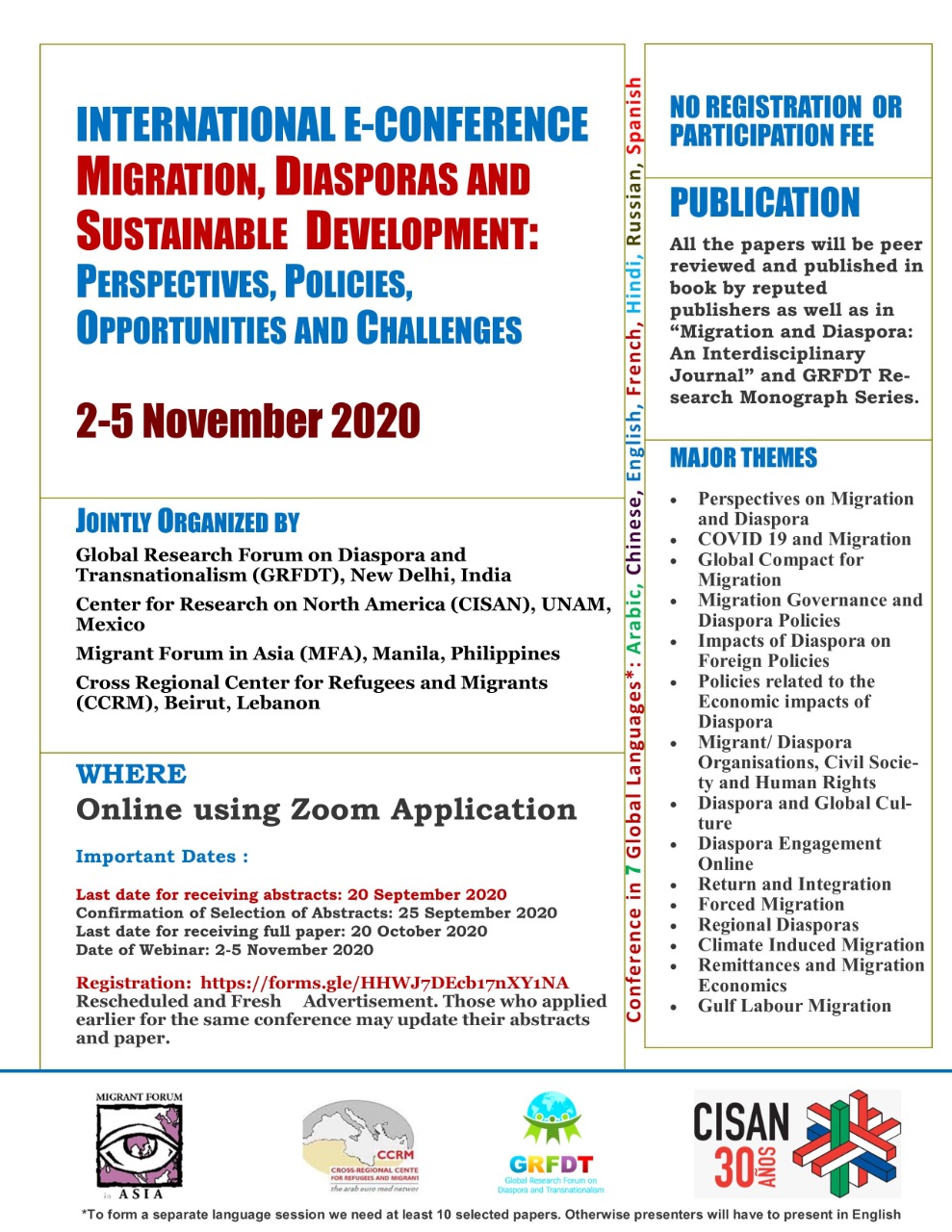
Conference Part 2
Human mobility is an age-old phenomenon, though its dynamics and character are changing over the time. Under the garb of globalization, international migration with various forms and features has been growing exponentially in the recent decades in response to global capitalistic developments. Subsequently, many migrant groups have turned into Diaspora communities across the globe. Today, Diasporas constitutes not only a substantial but also a vital segment of population that the human civilization is experiencing today. It is considered to be one of the emerging actors that significantly influencing the socio-economic, political and cultural spheres in the national and international arena. The multidirectional engagement between Migrants, Migrant Communities, Diasporas and host country and home country, and engagement in transnational and virtual platforms provides a very interesting space for academician and policy experts to engage. There are multiple dynamics involved in shaping the contour of the Diaspora and engaging them with region, nations and in the transnational spheres. In recent times female migration has been gradually growing across the globe, often faster than the male migration. The migration report of the UN (2015) mentioned that some parts of Europe and Africa the growth rate of female migration has already taken over their male counterparts i.e 51.9% in Europe, 51.6 % in Latin America and Caribbean, 51.9% in North America. Though traditionally migration from India has been male dominated, in the recent decade female migration has been rising. The COVID 19 Pandemic has brought unprecedented change in the human societies as it is undergoing economic, social, demographic and environmental changes. COVID 19 and human mobility or migration are inseparable. It is the human mobility that globalized the pandemic. However, the pandemic also aggravated human tragedy in terms of racial discrimination, scapegoating migrant communities and creating unilateral barriers by various nation states towards migration. This poses question for safe, orderly and sustainable migration that has been on of the important agenda of the Sustainable Development Goals 2030. Now the scenario has changed and there is more and more necessity for global cooperation to bring back the communities and countries to the development track. There are number of evidences in several countries where Diaspora engage in skill building in China, Israel and in less developed countries such as Afghanistan, Bangladesh etc. This can be done through volunteerism and through sustainable private public participation in areas that are locally feasible and marketable as well. High Skill Diaspora can engage in public policy, research and development, business and enterprise. However, there is need for more institutional platform to translate these to practice. Smaller Diasporas from Asia, Africa and Europe also provides very useful insight into the diverse range of engagement in the socio-economic and political spheres. Besides the Diaspora and homeland engagement that has positive developmental outcome, there are also conflict relations. The Jews, the Tamils, Sikhs and many other Diasporas in different parts of the world have conflict relations that provides a different way to look at not only the Diaspora homeland engagement but also how they mobilize the transnational space to fulfill their objectives.As migration will continue to occur an Diaspora communities continue to form, evolve and engage, it is time to think on the broader global context of sustainability. UN Sustainable Development Goal 2030 emphasizes on mainstreaming migration by focusing on various interrelated issues such as international cooperation, vulnerable migrants, humanitarian crisis, return migration, female migration. About the ConferenceThe proposed conference will bring together academics, practitioner and policy experts. It will help in consolidating the research findings related to various emerging perspectives and policies on Diaspora that will provide better insights in to the Diaspora-home country-host country-transnational relationship. The Conference will have both conceptual as well as applied areas so as to give a wholistic approach to understand the issue. The following are the Themes and Sub themes for the Book. However, all the related issues also welcome.

